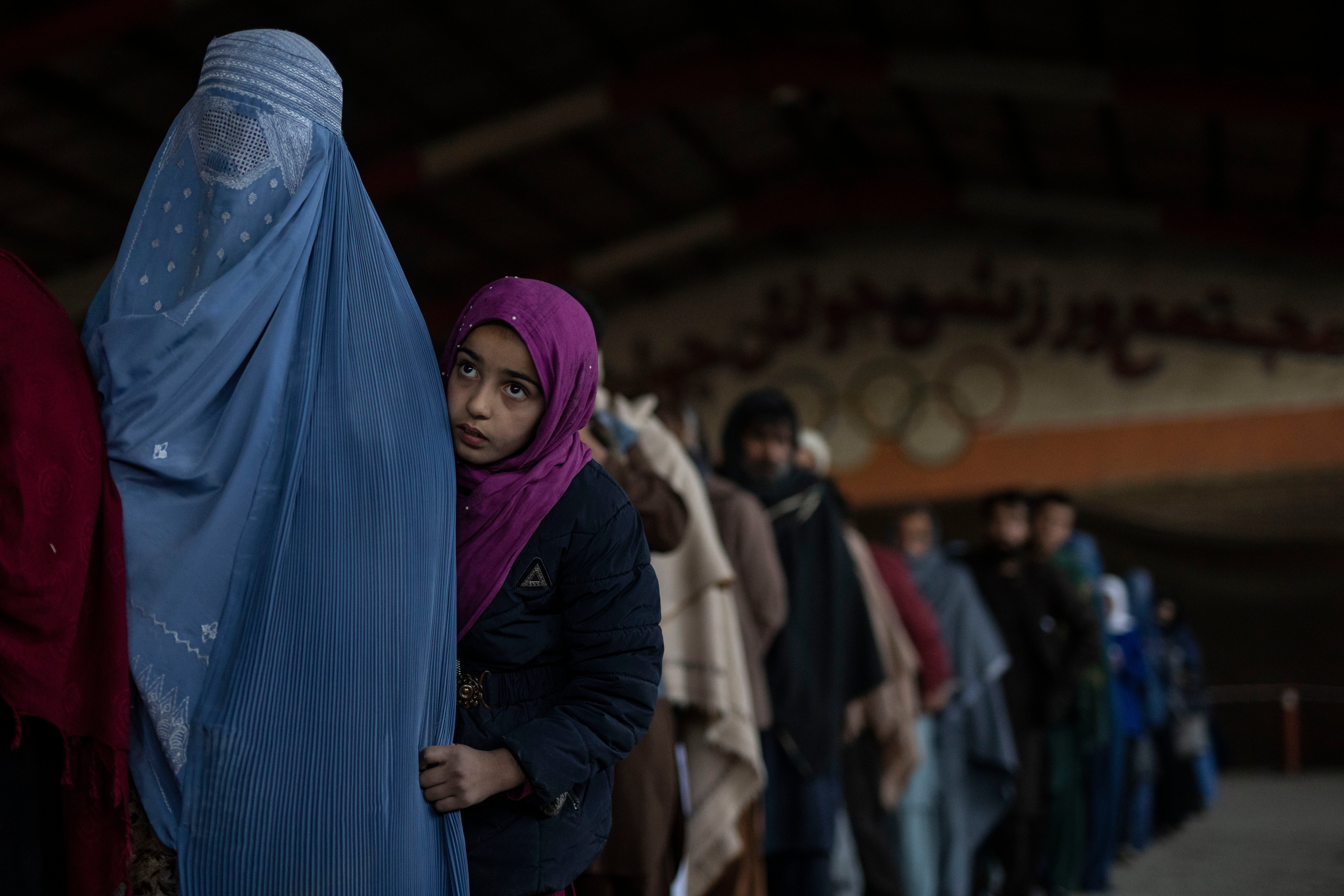UN releases $125 million for 14 underfunded humanitarian crises around the world
The United Nations has released $125 million from its emergency relief fund to boost underfunded humanitarian operations in 14 countries around the world, saying needs are skyrocketing

Your support helps us to tell the story
From reproductive rights to climate change to Big Tech, The Independent is on the ground when the story is developing. Whether it's investigating the financials of Elon Musk's pro-Trump PAC or producing our latest documentary, 'The A Word', which shines a light on the American women fighting for reproductive rights, we know how important it is to parse out the facts from the messaging.
At such a critical moment in US history, we need reporters on the ground. Your donation allows us to keep sending journalists to speak to both sides of the story.
The Independent is trusted by Americans across the entire political spectrum. And unlike many other quality news outlets, we choose not to lock Americans out of our reporting and analysis with paywalls. We believe quality journalism should be available to everyone, paid for by those who can afford it.
Your support makes all the difference.The United Nations released $125 million from its emergency relief fund Tuesdat to boost underfunded humanitarian operations in 14 countries around the world, saying needs are skyrocketing.
Afghanistan and Yemen top the list of recipients, with each getting $20 million, followed by Burkina Faso and Myanmar at $9 million each and Mali, Haiti and Venezuela at $8 million each.
The U.N. Central Emergency Relief Fund known will also provide $6.5 million to both Central African Republic and Mozambique, $6 million to both Cameroon and the Palestinian territories and $4 million to Malawi.
The fund will also provide $8 million to support refugee operations in Bangladesh and $6 million for refugees in Uganda.
“It is a cruel reality that in many humanitarian operations, aid agencies are scraping along with very little funding right at a time when people’s needs compel them to scale up,” U.N. humanitarian chief Martin Griffiths said in announcing the new allocations:
He said the Central Emergency Relief Fund can fill some gaps and save lives thanks to the generosity of a wide range of donors, “but we need individual donors to step up as well — this is a fund by all and for all.”
This year, the U.N. has appealed for more than $55 billion — a record — to help 250 million people affected by conflict, climate, natural disasters, disease outbreaks, displacement and other crises. But so far, its appeal has received about $16 billion, under 30% of the funds needed.
The $125 million from the Central Emergency Relief Fund brings the total amount allocated to underfunded emergencies this year to more than $270 million, the largest amount since the fund was established in 2005.
The U.N. humanitarian office said this reflects “skyrocketing humanitarian needs and the fact that regular donor funding is not keeping pace.”
U.N. deputy spokesman Farhan Haq said millions of people will go hungry this year unless donors provide the nearly $39 billion still needed to meet the U.N.'s appeal.
He pointed to Tuesday’s announcement from the U.N. World Food Program that it is being forced to cut an additional 2 million hungry people in Afghanistan from food assistance this month because of a lack of funding. That brings the total number of Afghans who have lost aid this year to 10 million.
In the coming months, the World Food Program said, it can provide food to only 3 million people. The Rome-based agency said $1 billion would be required for it to reach the 21 million people in need for the next six months.